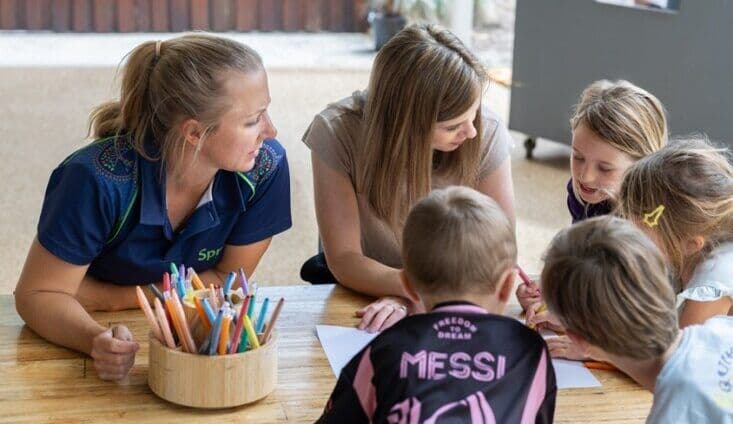Practice
Quality
Research
Workforce
Why sustainability isn’t ‘one more thing’ on your to-do list

FDC-Friendly
Fiona Alston
Nov 28, 2025
Save
Are you an early childhood educator or leader who wants to make a difference but feels overwhelmed by the thought of adding sustainability to your full plate? You’re not alone. The good news is that sustainability doesn’t have to mean more work.
A new book, A Changemaker’s Guidebook to a Regenerative Classroom by Dorothée Seeto and Lenka Miklos from Endless Play Studio, reveals how sustainability can be woven through your everyday practices to nurture 21st-century citizens and fill your own cup along the way. If you find driving sustainability at your centre has been overwhelming, frustrating, or even depleting, could you be getting stuck:- Thinking you need to do “sustainability education” with special gardening or recycling projects, for example, to teach ‘the green stuff’?
- Approaching sustainability as a silo instead of bringing education for sustainability into everything you do in your centre and every learning opportunity with children?
- Failing to get enough support from others in your team to teach sustainable ways of thinking and acting effectively?
- Viewing sustainability as a holistic endeavour,
- Shifting from silos to an integrated approach, and
- Taking a tailored whole-of-centre approach.
- Are you interested in teaching children mindfulness? That’s key to sustainable citizens.
- Are you a creative soul? A STEM fanatic? A craft expert? A problem-solver extraordinaire? Well, you can most definitely put your skills to the test by helping children imagine and create sustainable solutions to our world’s problems.
- Are you passionate about First Nations cultures? There’s much you can do to help children learn from (not just about) Aboriginal and Torres Strait Islander peoples.
- Are plants and animals your favourite topic? You can help children see the natural world as a source of inspiration for the latest and greatest inventions.
- Are you passionate about picture books? You can help children see and understand the interconnectedness and interdependency of many things on this planet through literature.
Don’t miss a thing
Related Articles



















